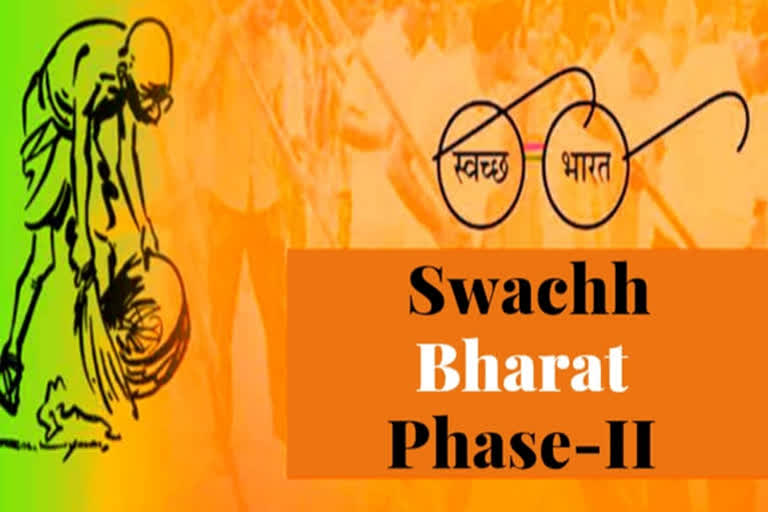Hyderabad: The central government is getting ready to implement the second phase of 'Swachh Bharat' in rural areas from next April. As part of this, the Union Cabinet has recently approved an allocation of approximately Rs 52,000 crore for drinking water and sanitation.
It is well known that around Rs.10,000 crores were allocated for the first year of the second phase for this cleanliness mega project. The professed goal is to eliminate total open defecation in the second phase! Recently the Standing Committee on Rural Development, which reviews the quality of sanitation services in various states, has come up with certain unpalatable facts.
It analyzed that UP, Bihar and Madhya Pradesh governments have accumulated unspent balances of Rs.6,500 crores in a span of two and a half years from the allocated budget under 'Swachh Bharat' account. If the states of Andhra Pradesh, Punjab and Assam are included, the unspent balances amounted to more than Rs.14 thousand crores.
The Standing Committee's finding highlighted the main cause for failure of the first phase of Swach Bharat as a delegation of responsibilities to many agencies that lacked commitment and accountability. Had a proper action plan been put in place, proper results would have been achieved commensurate to the money spent.
At least in the second phase of the movement, the lofty ideal of Swachh Bharat must be realized by taking corrective steps and properly spending every rupee of the allocation. The unhygienic atmosphere, dirt and garbage must be eliminated from villages by launching a movement like satyagraha.
With a firm commitment that the nation must be saved from the plight of open defecation, open drainage and open garbage system, the Modi government initiated the Swach movement on October 2, 2014. Slogans of 'Swachh Bharat' echoed from Kashmir to Kanyakumari with a resolve to enrich all human habitations in the country with a clean and green environment.
The resolve to ensure permanent toilets, waste treatment systems, quality drinking water and clean roads to all in the country by the 150th birth day of Bapuji (2nd October 2019) is lofty enough. The central government has proudly declared that in pursuit of this lofty goal, it has freed five and half lakh villages in 28 states and union territories of the country from open defecation by building nine crore 20 lakhs toilets.
The National Statistical Office (NSO), however, disagreed with the government's claim that toilets were available to 95 percent of the country's population. It confirmed that it is 71 percent in rural areas. The National Sample Survey Statistics Center says that toilets for half of the rural population in Odisha and UP are still a day dream.
In India, in-sanitation is the main reason for the loss of lives of millions of children every year, and retarded mental and physical growth of many others. It is a fact that the construction of personal and community toilets has picked up in urban and rural areas compared to the past.
However, this basic facility is still not in the reach of many crores of Indians is also an undeniable fact. The desired change can be achieved only with a scientific approach and unstinting effort and enthusiasm for Swach Bharat.
Though the Swach Bharat movement was started with a lot of enthusiasm and fanfare five years ago, it reached below 39 per cent rural population as per records. There is no correlation between the statistics of the government on the toilets constructed and the ones actually brought into operation.
A study conducted by the 'WaterAid' Organization in eight states a few years ago revealed many concerning facts. It has asserted that of the toilets projected as completed, only third of them fulfill the standards of health and safety, that 35 per cent of the toilets need to be repaired and the rest are useless.
According to a study by RICE (Research Institute for Compassionate Economics), 44 percent of the rural population in the four major states have no option but open defecation. When crores of toilets built under the Swach Bharat Scheme are rendered useless due to deficiencies in water and drainage management system, it amounts to wasting thousands of crores of rupees of the tax payer's money.
Creation of awareness on cleanliness and hygiene is as important as the awareness on the management of solid and liquid waste. Motivating the people towards the use of toilets by discontinuing old habits and standardizing the system for the efficient disposal of human waste are the important challenges before the government.
The incidents of constructing lakhs of toilets unscientifically, neglecting the recommendations in favour of environment-friendly and economical bio-toilets should not be repeated. Government strategies need to be sharpened to promote the cleanliness of the environment with civic participation.
Such a radical change only can unveil Swach Bharat.
Also, read: Trump praised for raising issue of religious freedom in India



